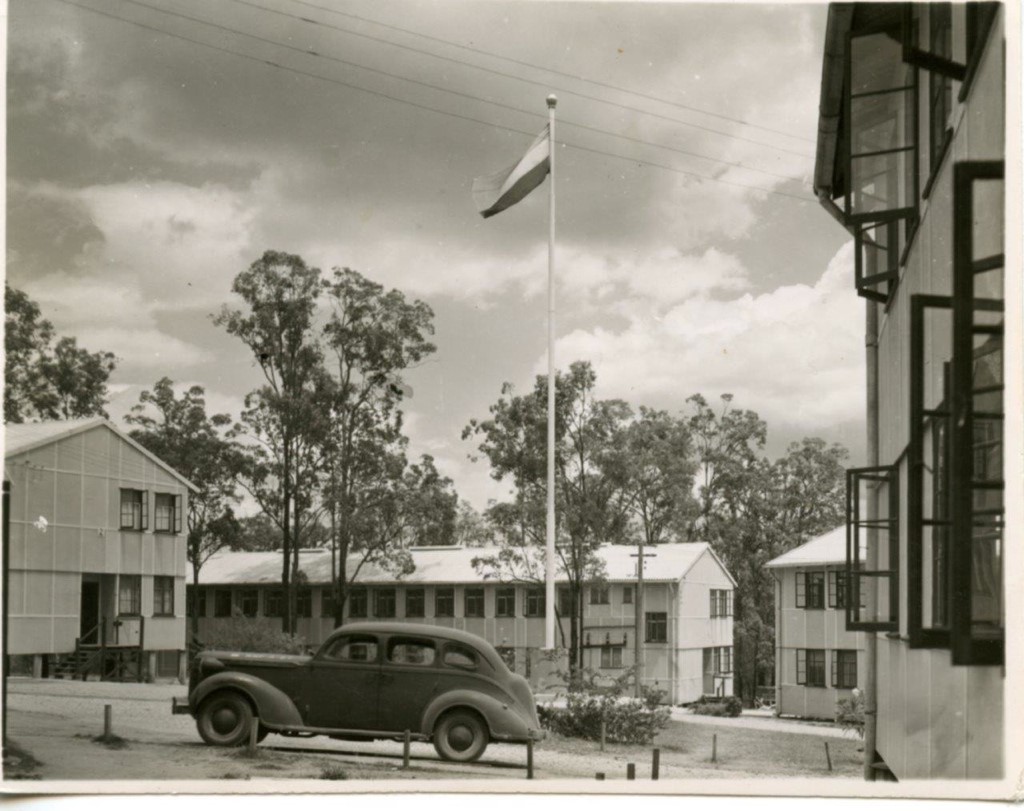
While Brisbane’s role in World War II is often remembered in connection with the large American presence and the headquarters of General Douglas MacArthur, few people today are aware of the significant Dutch wartime presence in the city—or the extraordinary fact that a foreign government operated from Australian soil during the final years of the Pacific War. This was the only time in Australian history that a foreign government operated in exile on Australian soil.
From 1944 to 1946, Camp Columbia in Wacol became the headquarters of the Netherlands East Indies (NEI) government-in-exile, making Brisbane a key diplomatic and military node in the Dutch war effort. This government had unique powers, overseeing not only military planning but also refugee support, intelligence coordination, and the future reoccupation of the Dutch East Indies. Its operations included:
- NICA (civil administration),
- NEFIS (intelligence and reconnaissance),
- NEIGIS (information and media services),
- and services for Dutch civilians, POWs and refugees, particularly in 1945.
In addition to the NEI government’s presence, Dutch military forces operated from Australia under Allied command. Dutch submarines and merchant vessels served alongside the U.S. Navy, Dutch pilots flew bombing raids from northern Australia, and KNIL ground troops continued fighting in New Guinea and Timor well after the fall of the Indies.
Yet this story is barely visible in Brisbane today. By contrast, the American legacy is widely commemorated—in museums, memorials, and public awareness.
After the war, the Camp Columbia site became home to the Wacol Migrant Centre, and many Dutch post-war migrants passed through its gates, unknowingly retracing the footsteps of their wartime government.
Today, the Camp Columbia Heritage Association (CCHA) is working to preserve what remains of this vital site, now located within the Pooh Corner bushland reserve. Only a few remnants survive, but their historical significance is profound. This work is supported by local councils, historical societies, and international partners, and forms part of a broader effort to protect and share Brisbane’s unique wartime legacy—one that is truly international in scope.
